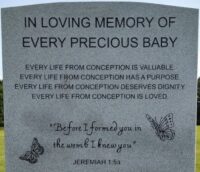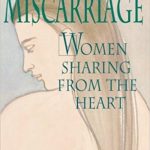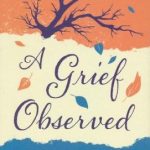While some parts of this book may be difficult to read, I feel it is a worthwhile purchase. Here are some quotes I found validating, and I encourage you to read them in context.
Page 13, “A woman. . .exists in a deep and intimate state of symbiosis with the baby in her womb. They are fused. Her baby is, quite literally, a part of her mentally, physically, and emotionally. This point is crucial toward understanding a woman who… [loses a child during pregnancy].”
Page 67, “’One day I was pregnant; the next day I was not. I felt strange, sad, empty, and lonely. Nobody had forewarned me about the lonely, empty feeling. I had been pregnant. I had this life inside of me. I knew I had a baby. But the next day—there was no baby. My child had died. I knew I lost a whole child. . .. Well I didn’t care what stage she was in. I lost a whole entire child! It was as big a loss as if she had been born. But nobody acknowledged that. There was no validity to my pain.’” [Read The Importance of Validation.]
Page 47, “’It is the death of a child. You have a more intimate closeness with a baby than you do with any other being. This was my child, and it died. I tell people now, “I lost my only child.” It is the death of hopes and dreams and of a collective future. It’s the same thing as losing a living child fully grown and developed. A lot of people look at miscarriage and say there was no personality there, no physical child that cooed and talked back and smiled and cried. But for you these things are very real.’” [Read Personhood Stories.]
Page 53, “’I had this life inside of me. It was the closest person in the world to me. It was a really warm feeling. Then all of a sudden, it was taken from me. I felt so empty and lonely. Nothing could take its place. . .. I deeply felt that baby’s absence. My body was all by itself again. I felt a great yearning. There was this great hole in my life. I was empty and gaping.’” [Read My Baby is in Heaven.]
Page 57, “’I felt I had lost my child, and people couldn’t understand that because my child was not tangible [to them] . . .’”
Pages 115-116, “’…we found out that we had a new baby brother or sister on the way…. the new baby that Terese and Jordan had always wanted. We all loved our baby deeply and immediately. I had a dream which indicated the sex of our child. I knew he was a boy….’” [She miscarried at 10 weeks, and the following week, her son’s teacher told her that he started acting out at school.] “’That night I put him on my lap. I said, “Rose told me you’re having a very hard time at school.” He very genuinely shrugged his shoulders. I said gently, “I wonder if you’re feeling sad about our baby,” and he opened his mouth wide, and he wailed for an hour and a half. The first words he could utter were, “I didn’t even get a chance to change his diapers!”
Pages 81-82, “’I talked to my baby all the time. I told the baby often that I loved him. . .and that we would do our best to be good parents. I felt like I had a really good relationship with my baby. . .. On an emotional, intuitive level I think he was a boy. After the miscarriage we named him Michael. It seemed the right thing to do…. I have “felt” him, his shape, his touch, his feel.’”
Page 145, “’I knew it was a real baby! That baby had a name! That baby was a girl! . . .We had talked to her, and we called her by name. She was Rebecca.’”
Pages 193-194, “’. . .I awakened from a powerful dream which told me of the presence of a new baby son. In the dream, he looked fat, healthy, and about three months old, and he was naked and lying on his back with his feet in the air. I had had the same kind of dream (of a baby girl) when I was first pregnant. . .eight-and-a-half years before. These two dreams felt very different from my regular dreams, in that these felt utterly real….
‘When I am pregnant, I have an acute sense of a tiny, powerful presence in me. I feel deeply blessed. I feel like my baby and I are in a private little fort together, and no one knows we’re there but the two of us….
‘Because I was on birth control, this seemed to be a miraculous conception. God simply vetoed the birth control. Nobody could argue with “The Ultimate Authority” about whether or not this baby was supposed to be here. It was fate. And I was elated!…
‘I felt joy and great love in my heart at the thought of this little boy of mine…’”
Pages 73-74, “When women were asked to complete the sentence, ‘Having a miscarriage is like…,’ their responses were dramatic…. [responses below]
‘…losing a part of your soul, having it taken away from you and never being able to get it back….’
‘…having a very important promise broken without explanation, like a betrayal. It’s not the way we were told it would be….’
‘…having your body torn in two. It’s a pain you don’t think you’ll live through.’
‘…there is nothing else to compare it to. It’s losing a child….’
‘…losing a part of yourself. It’s losing something alive and made out of love that was growing inside of you.’
‘…nothing I’ve ever known before. It’s a very lonely feeling. It’s like giving death. When you give life, everyone is there to cheer you on. But when you give death, you do it alone.’”
Page 71, “The greatest difficulty described by many women was the lack of empathy from those around them and the loneliness that resulted from it:
‘I didn’t get any sympathy. I had no one to say, “I’m really sorry.” I didn’t matter to anyone. People didn’t care—not even my family. It was no big deal to them. It was nothing. It was like it was null and void, and life continued to go on. There was not enough pause. I started building that wall around me.’
‘I was not supported. It was all dealt with so matter-of-factly, like a surgery, not like I had really lost babies. It was treated more like an appendectomy. The most difficult aspect of it all was the loneliness. The real, real loneliness.’”
Page 87, “Because of the great discrepancy between what we experience when we miscarry and what society understands about what we experience, our social systems do not provide the compassion and support we need in order to work through our grief.”
Pages 88-89, “’He thinks I should be over it. He says, “Please don’t cry. Don’t fall apart.” I feel like an emotional basket case.’
‘Sometimes I cry during the night. One night he said, “Are you still rehashing this? Stop thinking about it and just go to sleep.”’
‘It was nice to learn that we could support each other. But then he decided I should get over it.’”
Page 110, “’After the second loss, my husband and I had a terrible, terrible exchange…. [He] said, “It’s just as well you lost the baby because you never would have loved it as much as you loved the first.” That statement did something terrible to my feelings. Something else died besides unborn children. It was the most devastating thing anybody ever said to me. He couldn’t get the idea that these babies weren’t interchangeable. I have a very strong sense of that. They were separate. They were different. Each was a soul. Something in me just got completely crushed.’”
Page 47, “The loss of a child is the loss of a child, regardless of the cause.”
Page 121, “’…You have to hide your feelings about pregnant women and their babies. It’s hard. Not that you don’t want them to have beautiful children; you just feel so empty.’”
Page 117, “People who invited the women to talk or who simply listened without judgment, belittlement of the loss, or pointing to ‘the brighter side’ were helpful. When others acknowledged the women’s…losses and responded with compassion and acceptance, relationships felt healing and were remembered with deep appreciation… ‘One woman put her arms around me and said, “This is really hard for you. You’ve lost a child. When you want to talk, I’m here.” It helped when other people acknowledged that a child was lost, said they were sorry, could stand it if I cried, or listened…. People who were supportive then have always remained special to me.’”





